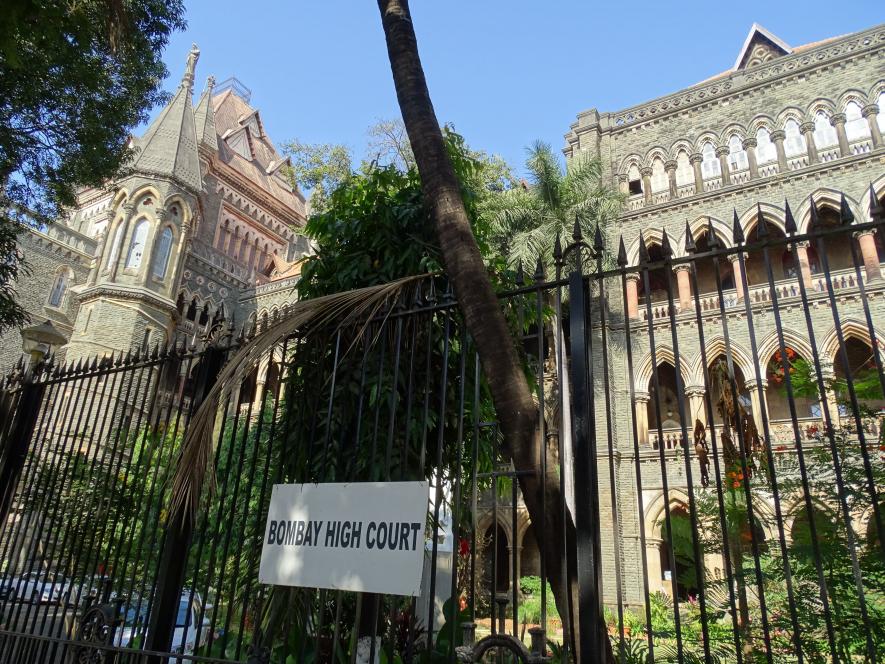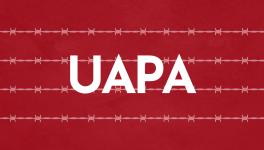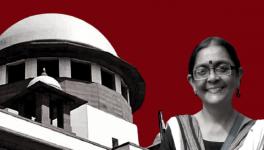2 More Bombay HC Petitions Challenge IT Act Amendment

Image Courtesy: Wikimedia Commons
The Editors Guild of India and the Association of Indian Magazines (AIM) filed separate petitions in the Bombay High Court (HC) on Wednesday challenging the amendment to the Information Technology (Intermediary Guidelines and Digital Media Ethics Code) Rules, 2021, which empowers the Centre to fact-check “fake or misleading news” about its policies, etc.
A Division Bench of Justices Gautam Patel and Neela Gokhale tagged the two petitions to a plea filed earlier by stand-up comic Kunal Kamra against the amendment, which provides for setting up a fact-checking unit, and adjourned the matters for a final hearing on July 6, Bar and Bench reported.
The HC also directed the Ministry of Electronics and Information Technology (Meity) to file its response to the petitions by June 20 and serve a copy to the other side. The court permitted the petitioners to file rejoinders by June 28, LiveLaw reported. “Since there are three petitions, we will not permit repeated arguments,” Justice Patel clarified.
During the hearing, additional solicitor general Anil Singh told the court that the Centre would defer forming a fact-checking body to identify and tag “false or fake online news” concerning a government activity until July 10.
Challenging the amendment to Rule 3(1)(b)(v) and Rule 3(i)(II)(A), (C) of the Act, the three petitions stated that it should be held ultra vires Section 79 of the Information Technology Act and Articles 14 (right to equality) and 19(1)(a)(g) [freedom to practise any profession or to carry on any occupation, trade or business].
The petitioners contented that the amendment will lead to telecom service providers and social media intermediaries taking action against content flagged by the fact-checking unit. Therefore, they further contended that they would lose the safety granted under Section 79 of the Act.
While Kamra’s primarily concerns a satirist’s rights under Article 19(1)(g), AIM’s plea highlights the amendment’s implications on press freedom and citizens’ right to know.
“Vague and overbroad laws induce a chilling effect on freedom of speech as citizens lack clarity about whether the content of their speech is prohibited. To avoid violating the law unintentionally, they engage in self-censorship,” AIM stated.
AIM’s petition stated that the lack of precision in the phrase “false and misleading” will inevitably lead to intermediaries opting to take down content flagged by the government’s unit rather than risk losing their safe harbour protection.
The rules have been framed under Section 87 (2)(z) and (zg) of the Act, which pertains to blocking content under section 69A and guidelines to be followed by intermediaries under Section 79(2), AIM further stated. But none of the provisions empowers the government to regulate and limit content on the Internet, the petition stated. “Fake or misleading online content” is not a ground to authorise blocking under Section 69A”.
Kamra had alleged that Centre’s motive for the amendment was to prevent scrutiny of its actions and argued that it wouldn’t be covered by any of the reasonable restrictions under Article 19.
Seeking ad interim stay on the amendment, Kamra submitted that it arbitrarily discriminates between fake/false or misleading information about the Centre as opposed to all other forms of fake/false or misleading information.
In April, the Centre had opposed Kamra’s petition in an affidavit filed in the HC stating that false and misleading information could impact electoral democracy and weaken the trust of citizens in democratic institutions.
However, the Bench had expressed its prima facie opinion observing that the rules did not seem to offer protection to fair criticism of the government like parody and satire.
On Tuesday, the Centre filed another affidavit in response to Kamra’s plea in the HC contending that any information identified as false and misleading by the unit “would not result in automatic take down of such content”.
“Under Rule 3(1)(b)(v), the identification of the fact-checking unit of the Central government will have no binding effect on the intermediary nor would it have any effect in the nature of direction to block the said information/content as contemplated under section 69A of the IT Act,” the affidavit stated, Bar and Bench reported.
Any person aggrieved by such flagging of content would always have a legal remedy, the affidavit further stated.
“In case, where fact-checking unit of Central government intimates the intermediary that any information displayed on its platform is based on patently false and misleading facts, any person aggrieved by the availability of such information would be entitled to pursue any legal remedy, the court shall be the final arbiter of the factual correctness of the information,” the ministry submitted.
MeitY clarified that Rule 3 only deals with due diligence to be followed by an intermediary. “The said provision in no way confers any power upon the Central government to block any information, which is separately provided under Section 69A of the IT Act and is to be exercised independently by a separate authority,” the affidavit stated.
The affidavit highlighted that amendment only seeks to redress “intentional communication of fake, patently untrue and misleading content. “The said rule in no circumstance proscribes or ventures into an arena where information/content which are based on true set of facts is sought to be forbidden,” the Centre said.
Get the latest reports & analysis with people's perspective on Protests, movements & deep analytical videos, discussions of the current affairs in your Telegram app. Subscribe to NewsClick's Telegram channel & get Real-Time updates on stories, as they get published on our website.
























